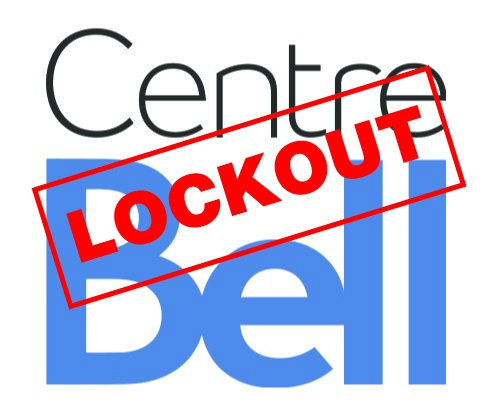For example, many of us enjoy coming home after an arduous day at work, slumping on the couch, opening a good old Canadian beer, and watching Les Habitants face off one of the other 29 teams in the National Hockey League.
Not this year, Canada.
As of last Tuesday evening, the NHL has announced their fourth lockout since 1992. Gary Bettman, the NHL commissioner, has arguably become one of the most hated people by serious hockey fans, ever.
The disappointment will be most evident in the coming month when the first games were supposed to start, and fans will be forced to entertain themselves by some means other than hockey.
However, in Montreal, there may be a set of people that will be even more on edge than the average fan. Those people are restaurant and bar owners. For the fourth time, they’ll have to feel the economic strain of not having people’s favourite sport playing on every TV in their establishment; a pain that will be felt throughout the hockey year.
“Obviously, it sucks for business,” said Andrew Mackay to the Montreal Gazette. Mackay is a bartender at Ye Olde Orchard Pub & Grill on Mountain St., located a block away from the Bell Centre.
“With hockey we can guarantee that we’re going to be packed. Every night there’s a game, we’re [busy] from start to finish – 4 p.m. until the game’s done, and then there’s the after-rush.”
“We’re usually jam-packed before every home game,” said John Bobotsis, head manager at the Baton Rouge across the street from the Bell Centre. “That’s an income were going to miss as long as this lockout is still around.”
Restaurants won’t be the only ones feeling the economic slump of an NHL lockout. Many merchants in the Montreal area, that usually pre-order a large amount of Montreal Canadiens sports apparel and memorabilia before the end of the season, are mostly sticking with the inventory they currently have.
“I pre-ordered a big zero,” said Phil Morganstein, owner of Édition Limitée Morgan in the Eaton Centre. “I just want to be sure that they’re going to play.”
Montreal is different than most cities when it comes to sports. It doesn’t have other major sports teams that can fill bars and restaurants when the NHL is in a lockout. Most cities will be busying themselves with football, basketball, and baseball. Montreal will, therefore, feel the economic slump to a new level compared to other cities. Although Montreal is bustling with a variety of different entertainment establishments, many individual merchants will feel this strain, and that’s just unfair.
“Individually it might make a huge difference for certain retail stores, restaurants, and the like,” said Michel Leblanc, president and CEO of the Board of Trade of Metropolitan Montreal. “It may result in winners elsewhere, but some will lose out.”
There is only one answer then: Merchants need to ignore the Canadiens for the time being and focus on finding new and innovating ways to give people a reason to leave their homes in the middle of the winter and come downtown. Many business owners are already on the right track.
“We’re looking at ways to provide Montrealers with something else to look forward to,” said Mackay. “We’re coming up with different fun nights, different activity nights. We’ve just gotta come up with ways to work around [the lockout].”
This is precisely what Montreal needs; a nightly entertainment system that isn’t dependant on the ups and downs of a hockey season.
